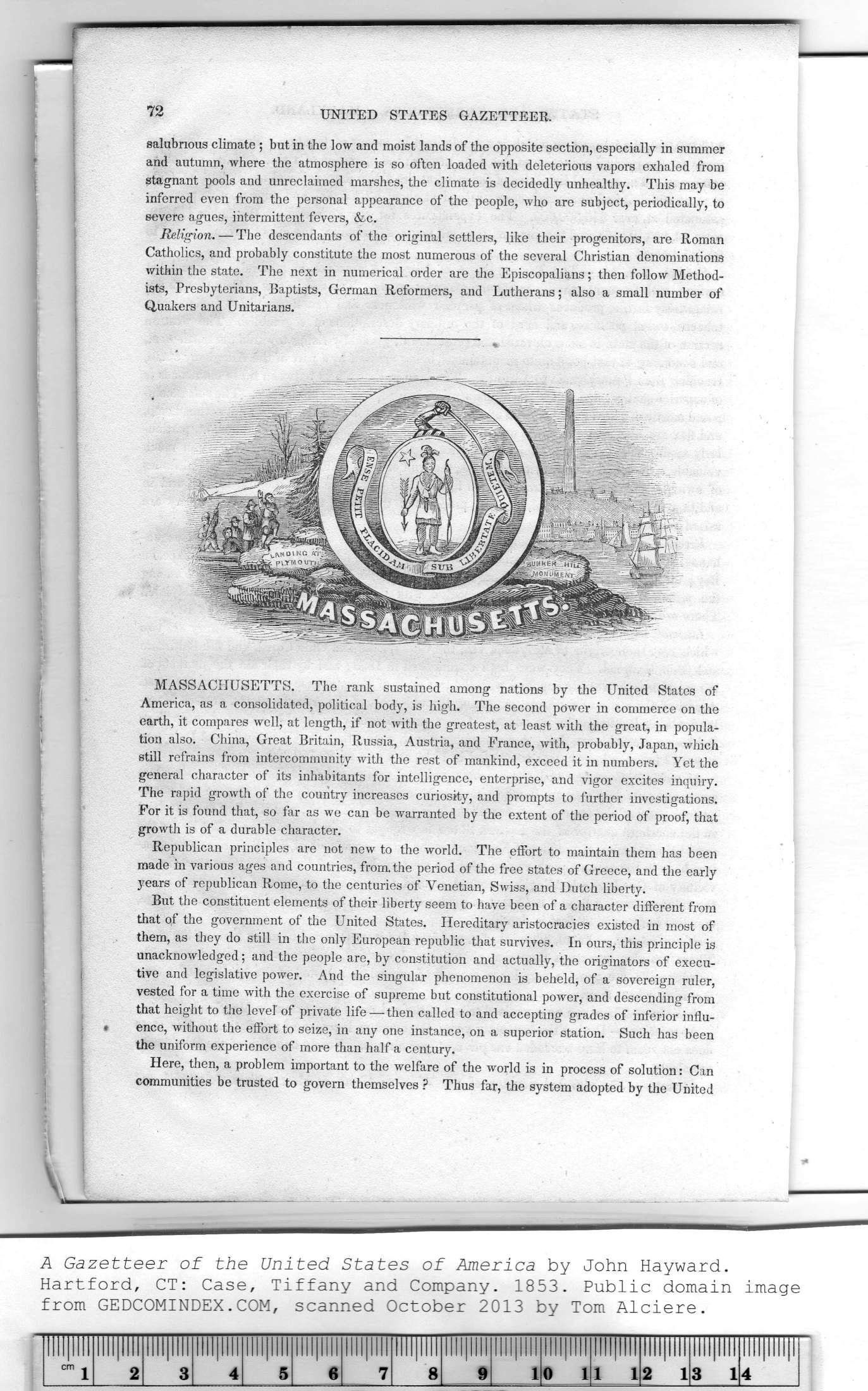|
|
Note: Ctrl and + increases the font size of the text below, Ctrl and - decreases it, and Ctrl and 0 resets it to default size.
72 UNITED STATES GAZETTEER.
salubrious climate ; but in the low and moist lands of the opposite section, especially in summer
and autumn, where the atmosphere is so often loaded with deleterious vapors exhaled from
stagnant pools and unreclaimed marshes, the climate is decidedly unhealthy. This may be
inferred even from the personal appearance of the people, who are subject, periodically, to
severe agues, intermittent fevers, &c.
Religion. — The descendants of the original settlers, like their progenitors, are Roman
Catholics, and probably constitute the most numerous of the several Christian denominations
within the state. The next in numerical order are the Episcopalians; then follow Method-
ists, Presbyterians, Baptists, German Reformers, and Lutherans; also a small number of
Quakers and Unitarians.
MASSACHUSETTS. The rank sustained among nations by the United States of
America, as a consolidated, political body, is high. The second power in commerce on the
earth, it compares well, at length, if not with the greatest, at least with the great, in popula-
tion also. China, Great Britain, Russia, Austria, and France, with, probably, Japan, which
still refrains from intercommunity with the rest of mankind, exceed it in numbers. Yet the
general character of its inhabitants for intelligence, enterprise, and vigor excites inquiry.
The rapid growth of the country increases curiosity, and prompts to further investigations.
For it is found that, so far as we can be warranted by the extent of the period of proof, that
growth is of a durable character.
Republican principles are not new to the world. The effort to maintain them has been
made in various ages and countries, from, the period of the free states of Greece, and the early
years of republican Rome, to the centuries of Venetian, Swiss, and Dutch liberty.
But the constituent elements of their liberty seem to have been of a character different from
that of the government of the United States. Hereditary aristocracies existed in most of
them, as they do still in the only European republic that survives. In ours, this principle is
unacknowledged; and the people are, by constitution and actually, the originators of execu-
tive and legislative power. And the singular phenomenon is beheld, of a sovereign ruler,
vested for a time with the exercise of supreme but constitutional power, and descending from
that height to the level of private life — then called to and accepting grades of inferior influ-
ence, without the effort to seize, in any one instance, on a superior station. Such has been
the uniform experience of more than half a century.
Here, then, a problem important to the welfare of the world is in process of solution: Can
communities be trusted to govern themselves ? Thus far, the system adopted by the United
|
Illllllll |
Illllllll |
Illllllll |
Illllllll |
Illllllll |
llll|llll |
Illllllll |
Illllllll |
Illllllll |
Illllllll |
Illllllll |
Illllllll |
Illllllll |
Illllllll |
llll|llll|l |
|
cm j |
2 |
3 |
4 |
5 |
6 |
7 |
8 |
9 |
1 |
0 1 |
1 1 |
2 1 |
3 1 |
4 |
|
